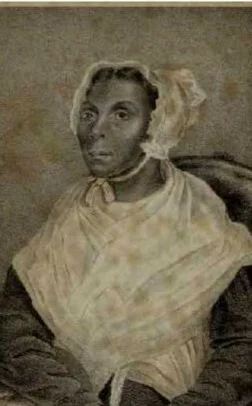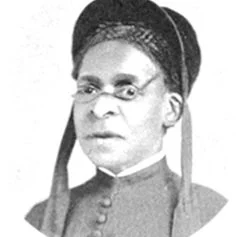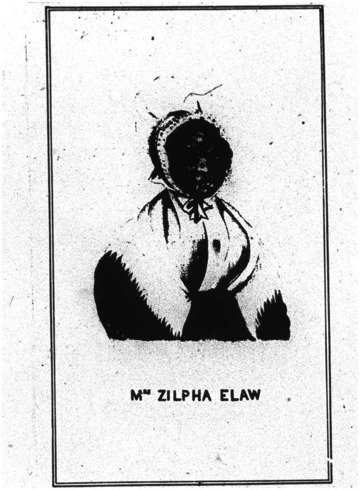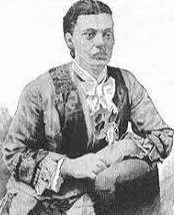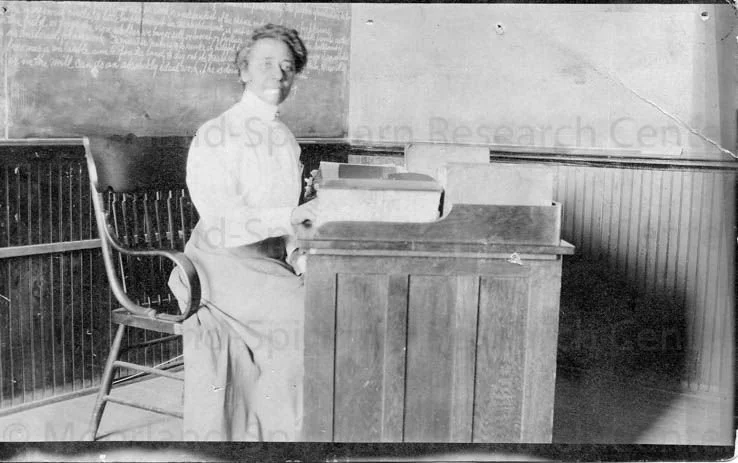Reading the Lectionary with African American Women Interpreters
Sunday, May 11, 2025
Weekly Lectionary Spotlight: Revelation 7:9-17 with Zilpha Elaw
“My soul was filled with heavenly hope... my treasure was in heaven; my hope bloomed... the anchor of my soul.
~ Zilpha Elaw
Sponsored By:
Bio: Born in Pennsylvania in 1790, Zilpha Elaw’s childhood was marked by loss and movement-her mother died young, her father soon after, and she was raised in a Quaker household far from home. Yet it was in the fields and meetinghouses of early America that she first felt the stirrings of faith, eventually experiencing a vision of Christ while milking a cow, a moment she never forgot. Drawn to the fervor of Methodist camp meetings in New Jersey and beyond, Zilpha became a preacher, traveling through Philadelphia, Burlington, and the slave states, often risking her safety to minister to both Black and white congregations. Her ministry was shaped by hardship and hope-she survived grave illness, endured skepticism for preaching as a Black woman, and found God’s presence in the open air, in nature, and in the gathered faithful. In 1840, she crossed the Atlantic to England, where she continued her ministry, sharing her story and preaching revival. Zilpha Elaw’s life (1790–1873) was a testament to perseverance, vision, and a hope that anchored her through every valley and across every ocean.
Zilpha Elaw
(1790-1873)
Bible Passage (NRSVue): “Then he said to me, ‘These are they who have come out of the great ordeal;…’ They will hunger no more and thirst no more; the sun will not strike them, nor any scorching heat, for the Lamb at the center of the throne will be their shepherd, and he will guide them to springs of the water of life, and God will wipe away every tear from their eyes.” (Revelation 7:4,16–17)
Her Interpretation: Zilpha Elaw’s autobiography, Memoirs of the Life, Religious Experience, Ministerial Travels, and Labours of Mrs. Elaw (Regenerations), portrays HOPE vividly. She casts Hope as a living, breathing force In her Memoirs, she narrates her spiritual journey as a relentless quest, not for fleeting comforts, but for the unshakable promises of God. When she writes, "My soul was filled with heavenly hope… my treasure was in heaven; my hope bloomed with the glories of immortality and eternal life: it was the anchor of my soul, sure and steadfast,"she isn't just quoting scripture. She's sharing a visceral understanding of Revelation 7:17, where the Lamb leads the faithful to "living fountains of waters" and God "wipes away every tear." Elaw's hope wasn't confined to the afterlife. It burst into the present through the rhythms of creation: the sun's daily rebirth, the unity of communities at camp meetings, and even the quiet strength of flowers breaking through tough soil. Her outdoor revivals and travels were stages where she saw the divine throne room manifested through shared labor, the fervor of prayer, and the peace of restored health. To read her is to experience someone who didn't just believe in Revelation's promises but who lived them in the raw fabric of her life.
Dr. Shively’s Reflection: For Zilpha Elaw, Easter was not a matter of the calendar but a way of seeing the world. She carried hope through hardship, not as a distant promise, but as a present reality that shaped each day. Her quote this week when she says, “...my hope bloomed with the glories of immortality and eternal life: it was the anchor of my soul, sure and steadfast...,” is not simply reaching for comforting words. Elaw describes hope the force that held her steady in the face of suffering, echoing the vision in Revelation of the Lamb who leads the faithful to living waters and wipes away every tear. Elaw’s story is woven with these resurrection threads. Her sister’s brush with death and sudden revival brings to mind the story of Dorcas in Acts, where prayer and faith break the hold of mortality. In the same way, Zilpha’s own prayers became acts of resistance against despair, and her ministry took on the character of a shepherd leading others through the “valley of the shadow,” as in Psalm 23. She found signs of God’s presence in the world around her-camp meetings under the trees became her green pastures, and the gathered faithful, a living testimony to the promise that “surely goodness and mercy shall follow me all the days of my life.” For Elaw, hope was not an escape from reality, but a force that transformed it. She wrote of her soul being “filled with heavenly hope,” her eyes set on “things above,” and her days marked by the assurance that God’s hand was at work, even in suffering. In her experience, the Easter story unfolded not just once a year, but every time despair gave way to praise, every time a sickbed became a place of new life, and every time a community gathered to sing under the open sky. Through her eyes, the promise of resurrection was not only a future hope but a living presence, as real as the people and places she loved.
Points for Preaching & Study
Greetings!
Welcome to Dr. Shively Smith's Digital Gallery of Interpretation for the 2025 Easter and Pentecost Lectionary season. This gallery celebrates the unique and rich legacy of 19th-century African American women writers (circa 1789–1899). It explores how their distinct perspectives can inform our application of the Bible in 2025. Each of these women was a pioneering interpreter of Scripture, utilizing the prevalent translation of their time, the King James Version (KJV).
For more information, listen to Dr. Shively Smith explain her digital Lectionary.
This digital interpretation gallery, designed for the Easter and Pentecost seasons in 2025, is a valuable resource for enhancing sermon preparation and personal Bible study. It is suitable for preachers, teachers, students, and laypeople alike. Sponsored by the Calvin Institute of Christian Worship, Dr. Shively’s gallery invites you to actively explore the contributions of African American women from the 1800s as guides for biblical interpretation.
The guiding question(s) below will help you compare the quotations of 19th-century African American women writers with the specific Bible passages used each Sunday.
An Easter Question to Ponder:


